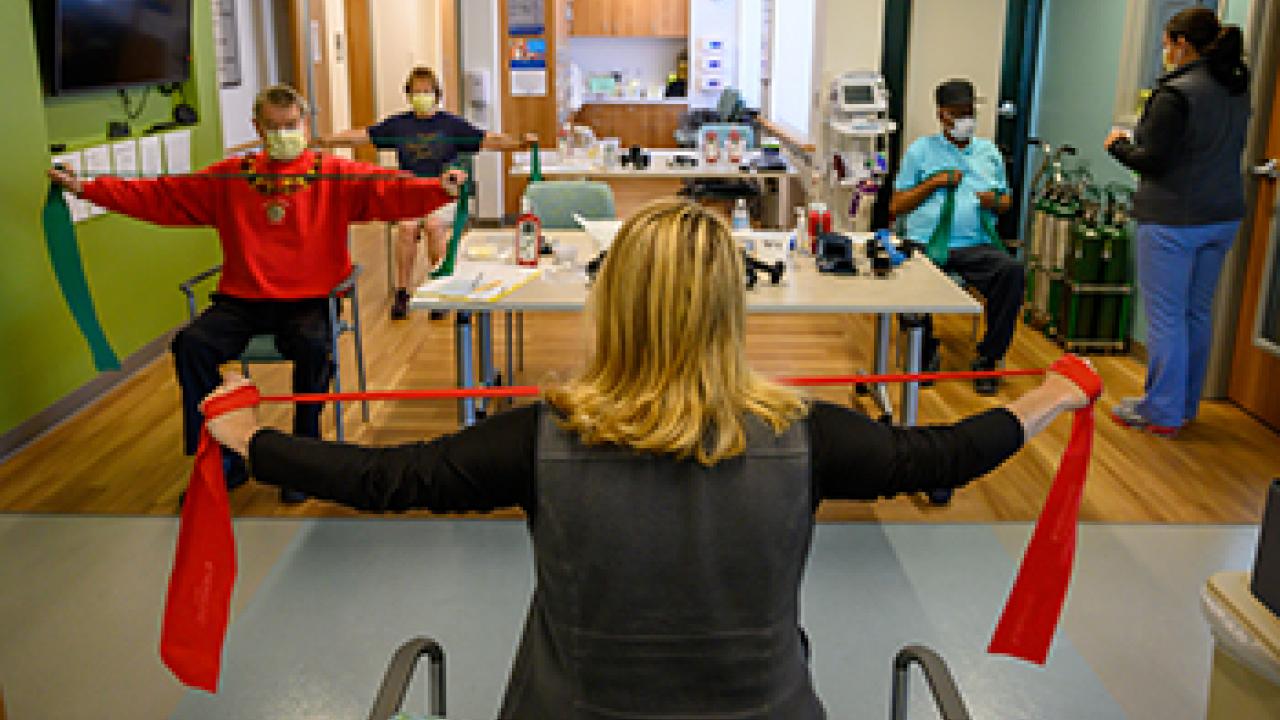
Studies show long-haul COVID-19 afflicts 1 in 4 COVID-19 patients, regardless of severity
A patient’s age, prior health or severity of their COVID-19 case does not seem to matter
More than one in four COVID-19 patients develop long-haul symptoms lasting for months – even if they had mild cases, according to a handful of studies that have emerged recently.
Doctors have been estimating one-quarter to one-third of COVID-19 patients become long haulers, as many patients call themselves. Now, four studies published since February confirm that range. They show that 27% to nearly 33% of patients who had COVID-19 but did not need to be hospitalized later developed some form of long-haul COVID.
“Those numbers are in line with what we’ve seen,” said Christian Sandrock, a UC Davis Health professor of pulmonary and critical care medicine. “What’s good about these studies is they help our patients. We can say, ‘You’re not alone. What you’re going through is starting to be defined.’”
Another consistent finding is that it does not appear to matter whether non-hospitalized patients had more severe cases of COVID-19, mild cases or even cases that caused no symptoms at all.
Just as consistently, age or prior health – whether people were active and fit or had some previous health issues like diabetes or respiratory problems – made only a very small difference, if any, among non-hospitalized patients.
“Obesity and diabetes stand out as risk factors that can make COVID-19 very serious and require hospitalization. They also increase the risk for those hospitalized patients to develop post-COVID symptoms,” said Sandrock, who works with the UC Davis Health Post-COVID-19 Clinic. “But among outpatients, risk factors made very little difference in the study numbers. That’s also what we’re seeing. Anyone can get long-haul COVID.”
Even the mildest cases can cause long-haul COVID
The largest study is in preprint, meaning it is still being peer reviewed. Researchers examined the medical records of 1,407 people seen at a range of University of California outpatient clinics and found that 27% of those patients suffered from shortness of breath, chest pains, coughs or abdominal pain two months after being sick with COVID-19 – and that nearly a third of those patients had no symptoms during their original infection.
“Among outpatients, risk factors made very little difference in the study numbers. That’s also what we’re seeing. Anyone can get long-haul COVID.”
— Christian Sandrock
A study from the University of Washington published in February found that 32.7% of COVID-19 outpatients developed long-haul symptoms and 31.3% of hospitalized patients became long haulers.
The difficulty with defining long-haul COVID-19 for patients who were hospitalized, however, is that many patients who spend time in intensive care for almost any reason – heart attack, trauma, flu and more – often take months to recover from both their illness and some of the ICU procedures that kept them alive.
“What’s so unusual is to see a large group of people who seemed to have less severe cases have such long-lasting symptoms,” Sandrock said. “This is not something we’ve seen with any other infectious disease.”
Researchers are also defining the most common symptoms for long haulers. A Stanford Health Care study of non-hospitalized COVID-19 patients published in the journal Clinical Infectious Diseases, and a study at New York City’s Icahn School of Medicine at Mount Sinai both found that fatigue and respiratory problems are the most common symptoms, followed by a mix of other issues including what’s being called “brain fog,” body aches and muscle pain, abdominal issues and loss of smell and taste.
“Fatigue and shortness of breath is what we see the most,” Sandrock said. “But one of the things about Post-COVID is that everybody seems to react differently.”
More studies are coming to learn more about the symptoms and what’s causing them – currently there are not even any widely embraced theories. The National Institutes of Health put out a proposal recently for a large national study.
“They’re trying to help answer questions about what is happening with these people and how we can help them more,” Sandrock said. “In our Post-COVID clinic, we’ve seen 130 to 140 patients now. Although this is still very new, we’re all developing some experience and collecting some information that can help us offer our patients more help.”
With that experience, Sandrock said, doctors now know that some patients with long-haul COVID will make progress, although it’s painfully slow.
“From the pattern we’ve seen so far, we can say some patients don’t get better but many do, although the pace is glacial,” he said. “We tell people not to look back day to day or even week to week, but they can see they’re improving month to month. Right now, that is at least something and we hope we will learn more soon.”